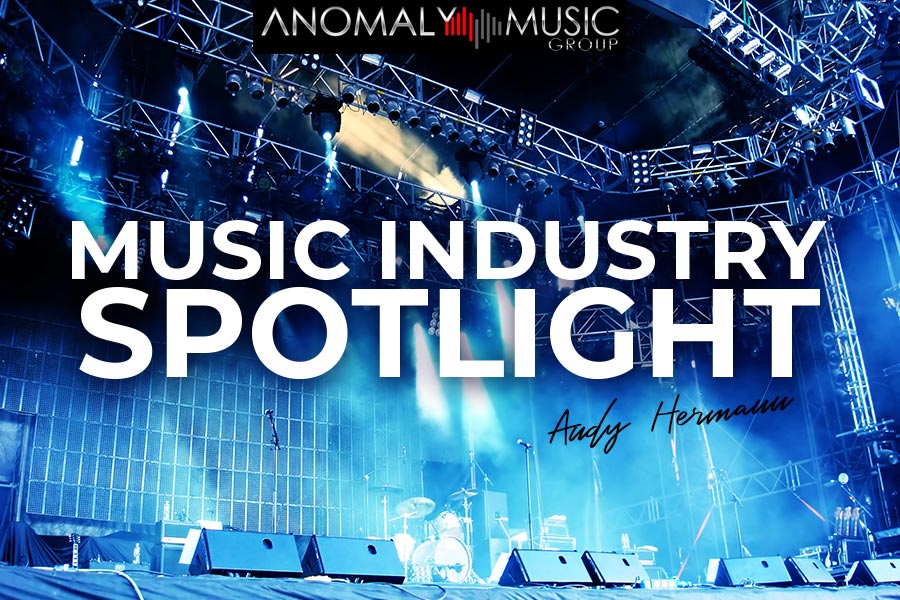Sometime last year I got a call from a journalist doing a piece for Billboard magazine. He wanted some information based on my experience using an online music marketplace called Sound Better, and I agreed to give him an unbiased, real-deal breakdown on the platform, as well as music marketplaces in general, seeing as I’ve been using online music marketplaces and platforms for over two decades.
I enjoyed this topic because not many artists have as much experience as I have when it comes to leveraging digital platforms to boost their careers, far before social media was even “a thing”. I started that journey over 20 years ago with MP3.com (where I was the #1 R&B artist), Listen.com (who called me ‘The Prince of his generation’), Billboard’s then BTN online talent chart (where I was #1 for multiple weeks), Def Jam’s Street Labs (who called me about a possible record deal), and Jimmy Iovine’s joint venture with MTV/The USA Network and Universal/Interscope, called Farmclub on Farmclub.com (who brought MTV camera crews to my house to document my appearance on their show.)
Unfortunately, due to the editorial process, my portion didn’t make it into Billboard magazine. But, I had a great conversation with Andy Hermann, the freelance journalist behind the piece, about digital platforms and how they’ve reshaping the music landscape online. A bit later, I realized that it isn’t often that the journalist is asked the questions, so that’s exactly what I wanted to bring to this week’s Anomaly Music Group Music Industry Spotlight, from a veteran music journalist and freelance journalist in general.
So without further adieu, here is my interview with Andy Hermann.
Hey Andy, thanks so much for doing this interview. My first question is, how did you develop a passion and love for writing, and how old were you when you knew you wanted to writer professionally? Most kids when asked, “What do you want to be when you grow up” don’t respond, “A Journalist!” How did that come about?
Both my parents were writers, so I grew up around it and always loved it. Some of my earliest memories involve sitting at the kitchen table in front of my mom’s typewriter, banging out short stories. I think I probably decided I was going to write for a living by the time I was 12. I didn’t want to be a journalist, though. Both my parents were reporters and I wasn’t interested in following in their footsteps. I wanted to write fiction. I loved horror, fantasy and sci-fi; my heroes were Stephen King, Stan Lee, and Ray Bradbury. But journalism sucked me in anyway. In my late twenties I got my first pieces published in The Boston Phoenix, a now-defunct alt-weekly. It was the first time I ever got paid for my writing and I was hooked.
When did you start to notice or feel a shift in the industry with regard to where content would be placed, what was becoming more lucrative etc, with regard to digital vs traditional publishing?
Boston Phoenix aside, I actually got my start in online media, around 2000; my first steady gig was writing album reviews for PopMatters.com. Around that same time, I also got the first in a string of editorial jobs for digital properties, starting with AOL’s Digital Cities and continuing with stints at ArtristDirect.com and Metromix. So in my journalism career I’ve always been a digital native.
If you want to talk about shifts in the industry, the only one I can speak to is this: Starting around 2007 or so, traditional publishing finally began taking online publishing seriously. Prior to that, I couldn’t get arrested in the world of print editorial; online credits were not valued at all. There’s still a hangover in the industry from those days; many publications pay freelancers different rates for print and online to this day, with the print rates being higher by as much as a factor of 10. (That attitude, I think, is partly to blame for how poorly print media has fared over the past decade; they ignored or downplayed the importance of online journalism for years, and were far too slow to adapt as their readers migrated en masse from print to online. But that’s a discussion for another time.)
Oh man, digital cities reminds me of GeoCities from back in the day! That’s there I hosted my first ever musical creations, homemade MIDI files. But let’s talk about audio as content, for a bit. Gary Vaynerchuk seems to think the future of content is audio. I’m not sure about that, but what are some insights you can share about where people in the industry think all this is going? Any insider talk about the future of content? And where do you personally feel the future of content is going?
Audio is already a bigger piece of the content puzzle than most people realize. Podcasting is now a $1 billion industry and it’s still in its infancy; it could easily be worth ten times that within the next five years. Over the past year, 90 percent of the work I’ve done has been in the podcasting space. In my industry, it’s the most exciting development since the emergence of blogging — and I would argue that it’s ultimately more exciting, because the possibilities of the format are much greater.
But it’s reductive to say that any one format is the future. Web, audio, video, even print — all will continue to have their place.
What is one of the most memorable interviews or content pieces you ever did? The most controversial?
I’ve been fortunate to interview so many fascinating characters over the years: Bootsy Collins, St. Vincent, Kim Deal, Lil Jon, William Shatner, Billy Idol, Anderson .Paak, James Murphy, Sia, Katy Perry, Adele, Paul Oakenfold, Moby. It’s hard to pick just one.
I’ve definitely written or edited my fair share of pieces that have generated controversy but I try not to dwell on those; the internet echo chamber is not really a good space for healthy debate. Early in my career I did sometimes deliberately set out to be provocative, but these days I try to approach any topic, no matter how controversial, from a more nuanced place. There’s enough shrillness in the world without me having to add to it.
You mentioned transitioning into the podcast space; how did that come about, and can you tell us what podcasts you’re working on now?
About a year ago an old friend and colleague connected me with Wondery, a podcast production company best-known for true-crime shows like “Dirty John” and “Dr. Death.” Since joining them I’ve written for several of their shows, including “Business Wars,” “American Innovations,” “American Scandal” and “Imagined Life.” The projects are really fun and challenging; each episode is like a little radio documentary, fully scripted and heavily researched. Before I started doing this I didn’t even know “podcast writer” was a job you could have, so I’m immensely grateful to have found this opportunity to work with one of podcasting’s most successful players.
Where can people get in touch with you if they want to work with you, or to find out more information?
I have a website, andyhermann.me; you can find samples of my work there and read a little more about me. I can be reached at andyLAeditor@gmail.com.
Anything else you want to say for our readers? Advice for people wanting to get into the business, or anything else you can think of?
The advice you’ll hear most often is write, write, write — and that’s good advice. But I would add to that: read, read, read. I’ve worked quite a bit with young and aspiring music journalists over the years and I’m always struck by how few of them can name more than one or two writers they follow or publications they read. If you really want to get into this business, you should be reading all the time — not just music blogs or magazines, but books, trade publications, zines, liner notes. Seek out and read good writing on a variety of different subjects, not just music or whatever it is you might want to focus on. You’re only as good as your influences. Find what you like, devour it, and make it your own. Once you have that foundation, you’ll find your voice.
Big shout out to freelance journalist Andy Hermann for taking the time out to do this interview.


